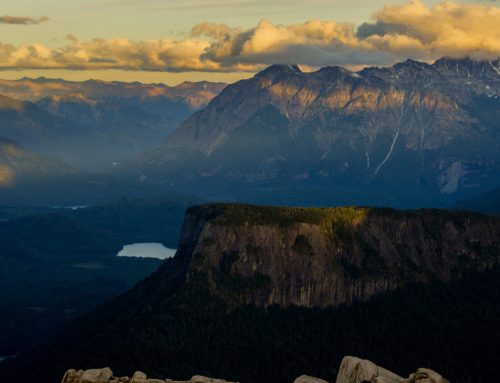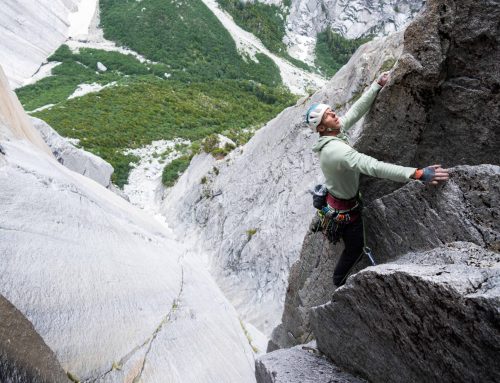Can you imagine that the key to slowing climate change lies in these ancient trees of Patagonia? That was the proposal that Conserva Puchegüín, an initiative that seeks to protect 133,000 hectares of nature and culture at Hacienda Puchegüín, located in Cochamó, took to Climate Week 2024 this week.
This global event, which this year took place in New York, brings together environmental leaders, politicians and philanthropists from around the world to discuss solutions and strategies to help combat climate change.

Climate Week 2024, New York.
With the presence of renowned primatologist Jane Goodwall, Nobel Peace Prize winner Muhammad Yunus and Chile’s Minister of the Environment, Maisa Rojas, this year’s Climate Week experienced an intense week of conferences, workshops, panel discussions and activities, including an event organized by the New York Times called “Take a Seat on the Table”, an instance of conversation where leaders of the environmental world present creative and inspiring solutions to face this new climate reality.
There Rodrigo Condeza, director of Puelo Patagonia, was able to explain how the conservation of the alerce trees of Hacienda Puchegüín are a key opportunity to confront the fight against climate change, due to their capacity to store a large amount of carbon, which is key for the future of our planet.

Rodrigo Condeza in Take a Seat on the Table.
More than a climate archive: a carbon refuge
Within the 133,000 hectares that make up this large estate in Cochamó, there are 10% of the world’s alerce trees. This majestic tree (scientifically known as alerce, or Fitzroya cupressoides), often lives more than 5,000 years and is not only an emblem of Patagonia: it is a living testimony of the climatic history of our planet.
“Imagine a tree that existed when civilizations were just beginning and continues to thrive today, silently recording the passage of time through its rings. Each ring tells a story of climate change, environmental transformations and the resilience of nature,” said Condeza in front of the rest of the audience.

According to the study “Alerce trees, millenary witnesses of the planetary climate”, the alerce is an archive of climate change that has made it possible to reconstruct the temperature of the planet 3,260 years ago. But for Condeza it is not just a witness to history, it is a key player in our future. “These trees are among the most efficient carbon storers on Earth, with the capacity to retain hundreds of tons of carbon in their massive trunks and roots,” he pointed out in front of the rest of the listeners at the table.
In research, Chilean scientist Antonio Lara claims that Patagonia’s alerce trees store up to 400 tons of carbon per hectare, far more than many other temperate forests, acting as long-term carbon sinks. “So by protecting the alerce we are not only preserving millennia of ecological knowledge, but we are also actively mitigating climate change,” Condeza reaffirmed.
Being part of the solution for the future of our planet
The protection of the alerce is a commitment of the Conserva Puchegüín campaign. Currently, Hacienda Puchegüín is not under any category of protection and for years has been threatened by various high-impact projects. Since 2022 it is for sale and today this initiative seeks to raise US $78 mm to be able to acquire this important property and create a conservation and local development project that involves, for example, research and active conservation of this endemic tree.

In that vein, Condeza closed his presentation by inviting the rest of those present to get involved and be part of a concrete opportunity to secure the future of the Earth: “By supporting this campaign, you are not only contributing to conservation, but you are becoming part of a global solution: preserving 133,000 hectares of critical lands that will continue to absorb carbon, protecting biodiversity and empowering local communities,” he concluded.
After this event, Conserva Puchegüín will continue its fundraising efforts to fundraising efforts to achieve the goal by July 2026, a date previously agreed upon with the owner of the property. Part of this work will include presenting the initiative to various philanthropists in the United States and Chile, talks at Patagonia stores in New York, San Francisco, and Pucón, as well as an ongoing territorial work of meetings with the neighborhood councils of the Cochamó community to learn their opinions and build the initiative together.









